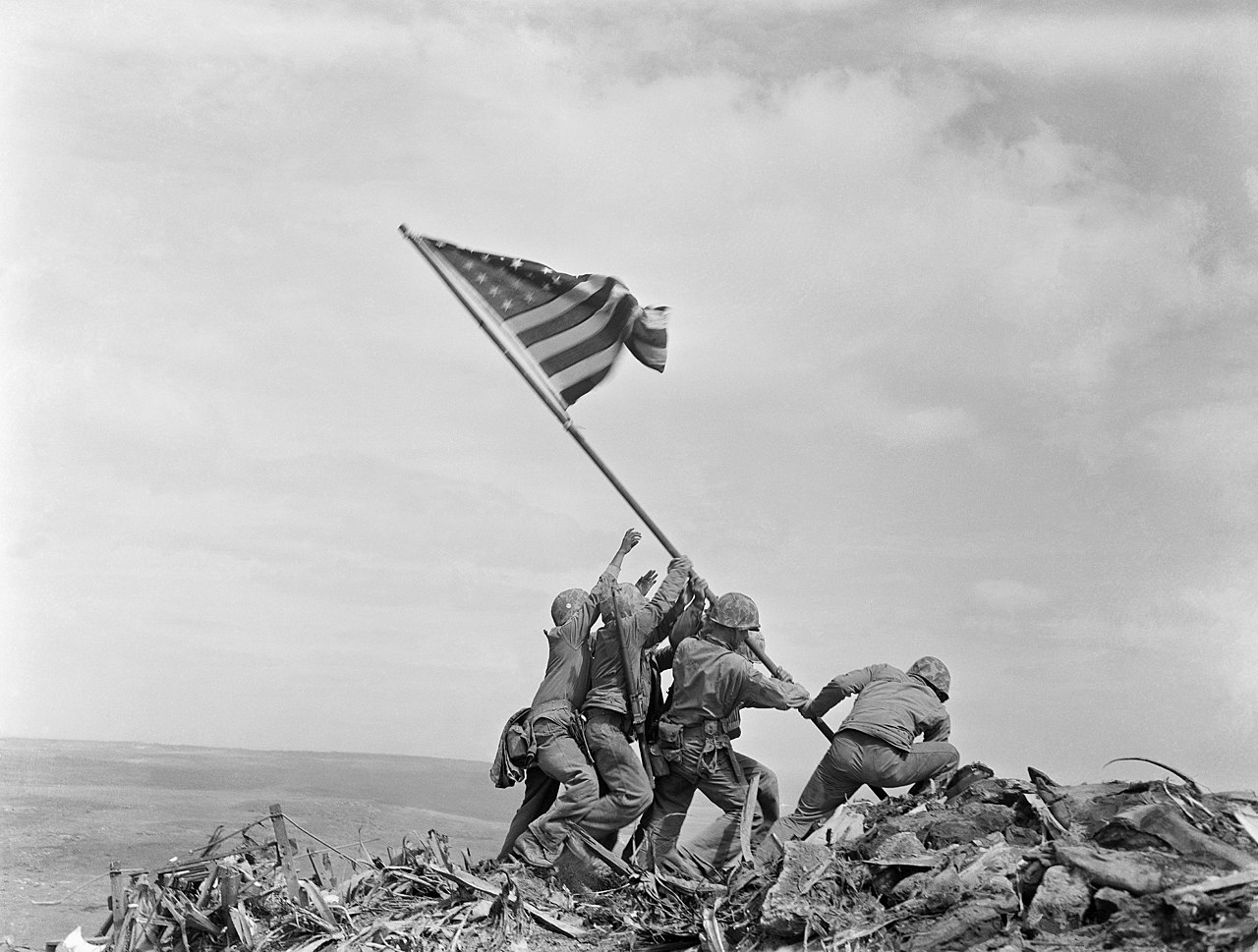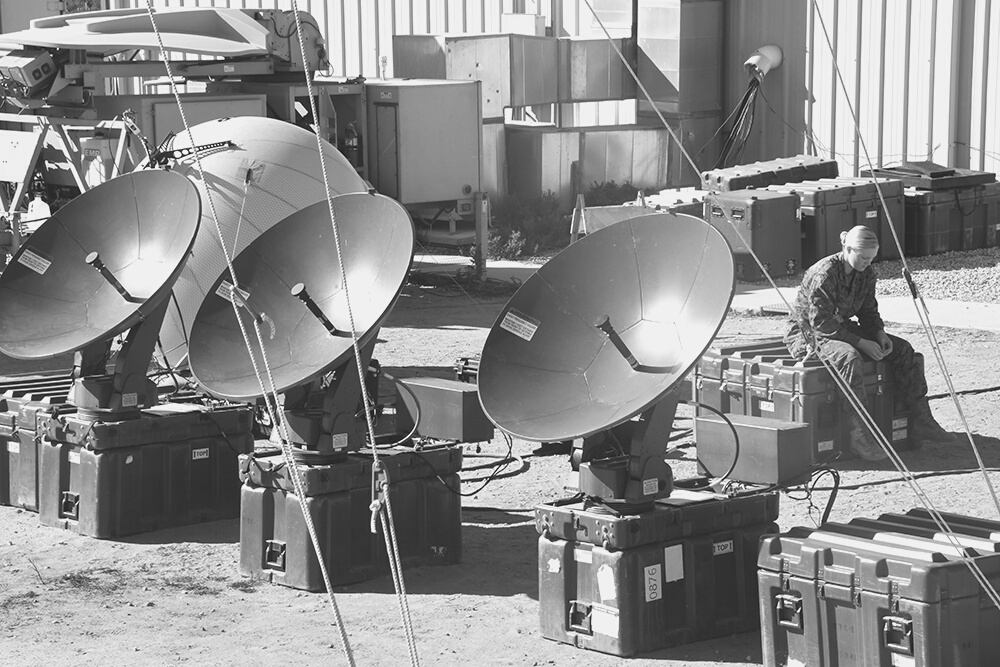Devil Dog Canines:
A Line of Communication in WW2
Impact
Communication is extremely important on the battlefield as it gives the military troops information about the allies and enemies, and helps them devise a strategy. The impact of the messenger dogs as a line of communication during the war when other means of communication were not available in the Bougainville Campaign was recognized; thus, their service was extended to Guam, Peleliu, Iwo Jima, and Okinawa Campaigns. The Marines' success at Bougainville crippled the Japanese forces that eventually aided the United States and their allies to win World War II.

Flag raising on Iwo Jima, 1945, National Archives
The realization of the heroic deeds of the messenger dogs as a solution to communication issues on the battlefield contributed to the evolution of war communication. With the switch from analog to digital, and then to the advent of new technology such as satellite communication, war communication has now become much better and reliable.

Marine Corps satellite, 2018, MCB
Dogs are still recruited and trained for military services like scouting and reconnaissance. Since the official acknowledgment of the use of dogs in World War II, laws have been changed so these brave dogs can be treated humanely. Laws like H.R. 5314 and H.R. 4310 are now in place to protect the retired war dogs from being euthanized or abandoned like a piece of equipment. Besides, these dogs are officially part of the military and should be treated as heroes.
H.R. 5314, Robby's Law, 2000, Congress.gov
(Pg. 76) H.R. 4310, National Defense Authorization Act, 2013, Congress.gov
“It seems that everyone, from the dogs’ handlers to top military brass, recognizes that MWD (military war dogs) are ‘not just a piece of equipment,’ but rather ‘heroes’ and true members of the military." - The Animal Welfare Institute, 2012